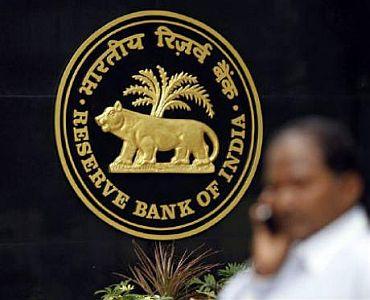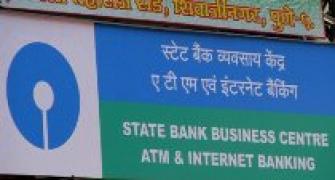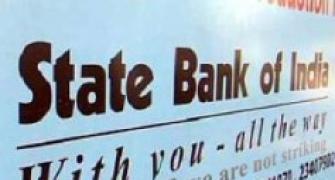 Banks led by State Bank of India (SBI) have made a pitch to the Reserve Bank of India (RBI) to permit them to lend below the base rate, at least for short-term loans with duration of a few days.
Banks led by State Bank of India (SBI) have made a pitch to the Reserve Bank of India (RBI) to permit them to lend below the base rate, at least for short-term loans with duration of a few days.At least two bank chairmen present during RBI brass' post-policy meeting with bankers on Wednesday said SBI is of the opinion that lending to a borrower even for a few days is better than parking surplus funds with the central bank through the reverse repo route. SBI Chairman O P Bhatt is at present the Chairman of the Indian Banks' Association, the industry lobby group.
"Earlier, a large AAA-rated company was availing loan for 4.5-5 per cent for tenure as short as seven days. Now, they are not ready to pay 7.5-8 per cent for the same product," said the chairman of a public sector bank who attended the meeting.
The plea comes within four weeks of the introduction of the base rate regime that replaced the earlier system of benchmark prime lending rates (BPLR). Along with introduction of the base rate, RBI barred banks from lending below the new benchmark in most cases. While the list of exempted categories has expanded to include loans to employees and depositors, export finance and farm loans, a bulk of the lending is now at a premium to the base rate.
A key reason for the introduction of the base rate was the fact that BPLR was viewed as non-transparent and three quarters of the lending took place below the benchmark. Ideally, the best borrower should get loans at the benchmark rate.
Though banks have the flexibility to fix the base rate using any methodology of their choice, they are expected to charge a premium for tenure and risk.
Banks have opted for measures as diverse as the average cost of funds in the previous quarter to the cost of funds with a certain maturity to fix their base rate.
Bankers said that the new regime did not permit them to offer loans at a discount to the base rate. "If the cost of funds is, say, based on the average cost for one-year deposits then anything below that level should be at a discount," said a banker.
Besides, a senior executive with a large public sector bank pointed out that during a pre-policy meeting bankers had pointed out that in certain segments, such as the letter of credit business, the state-owned entities had lost market share to private players, which had settled for lower base rates.
RBI on its part does not appear keen to provide further relaxations to the scheme at the moment as banks have the option to rework the system till the end of December.










